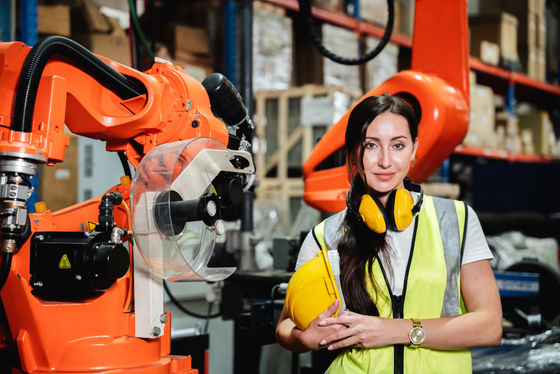Amazon, the world's second-largest employer, replaces 100,000 humans with 750,000 robots, a 'microcosm of how AI is changing the workforce'

Amazon, the world's second-largest private employer with 1.5 million employees, is cutting its workforce by 100,000 and putting about 750,000 robots to work, financial news media Benzinga reported.
Amazon Grows To Over 750,000 Robots As World's Second-Largest Private Employer Replaces Over 100,000 Humans - Benzinga
Top Amazon exec says it's a 'myth' robots steal jobs
https://www.cnbc.com/2024/04/12/top-amazon-exec-says-its-a-myth-robots-steal-jobs.html
According to Benzinga, the number of Amazon employees has fallen to 1.5 million at the time of writing, down from 1.6 million in 2021. Meanwhile, Benzinga reports that Amazon is introducing 200,000 robots in 2019 and 520,000 robots by 2022.
One example is the robotics solutions Sequoia and Digit, which are said to speed up work in Amazon warehouses by up to 75%.
Amazon introduces new robots 'Sequoia' and 'Digit' to its warehouses, successfully speeding up inventory identification by up to 75% and order processing by up to 25% - GIGAZINE

This significant investment in robotics demonstrates Amazon's commitment to innovation in its supply chain and also represents the company's belief in the power of humans and robots working together.
Despite its large-scale automation, Amazon emphasizes that the introduction of robots is contributing to the creation of high-skilled jobs, and Benzinga argues that this is not just a trend at Amazon, but across industries seeking to integrate advanced technology with the human workforce.
The introduction of large numbers of robots on-site has called into question the future of the role of humans in Amazon's operating model, with many concerned about the impact on tasks that are repetitive and easily automated.
On the other hand, an Amazon executive interviewed by the American news media CNBC said that the idea of robots taking over jobs is just a 'myth.'

'Robots and technology are helping our employees by reducing walking distances at work, reducing repetitive movements, and helping with heavy lifting,' said Stefano La Rovere, head of global robotics at Amazon. 'As a result, employees can learn new skills and capabilities, gaining new strengths that can advance them toward their career goals.'
According to La Rovere, in the few years since Amazon began using robots in earnest, the company has created 700 new jobs and added more than 50,000 jobs in European fulfillment centers alone, and he points out that Amazon's robotics and AI business, which he leads, is a prime example of this.
These changes in jobs at Amazon may be a microcosm of a broader shift in work as human workers move toward more complex, less repetitive tasks that require higher levels of skill and creativity.
Benzinga concludes, 'Amazon could serve as a test case for larger economic trends in which the integration of robotics and AI will reshape industries and labor markets. The challenge for Amazon, and for society as a whole, will be to navigate this change by maximizing the benefits of automation while mitigating the negative impacts on employment and ensuring that the benefits of increased productivity are shared across the workforce.'
Related Posts:
in Hardware, Web Service, Posted by log1l_ks







